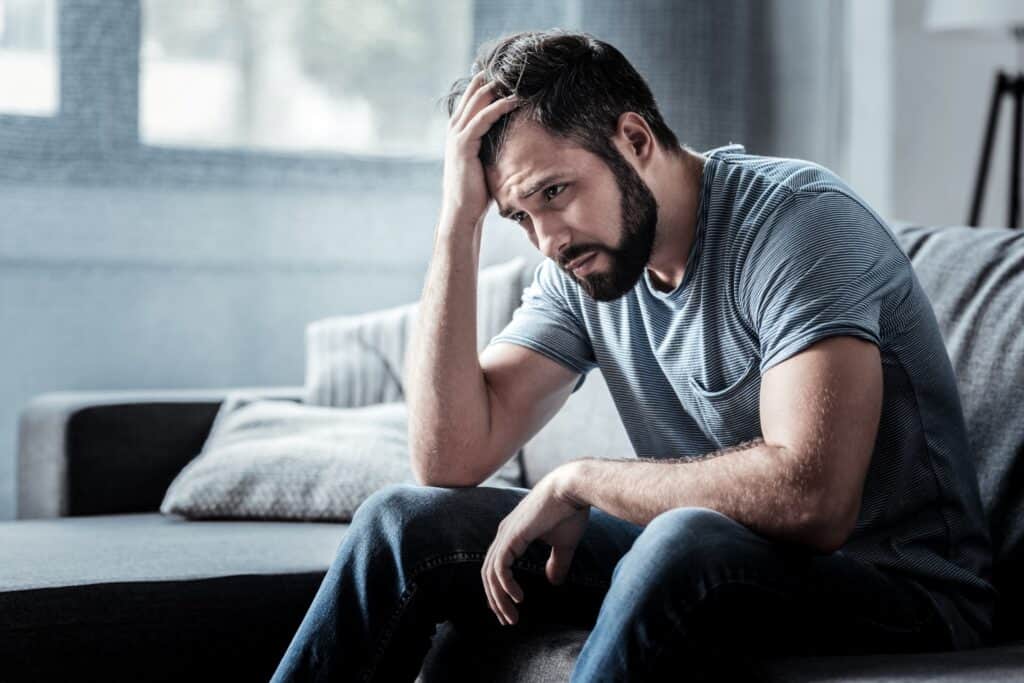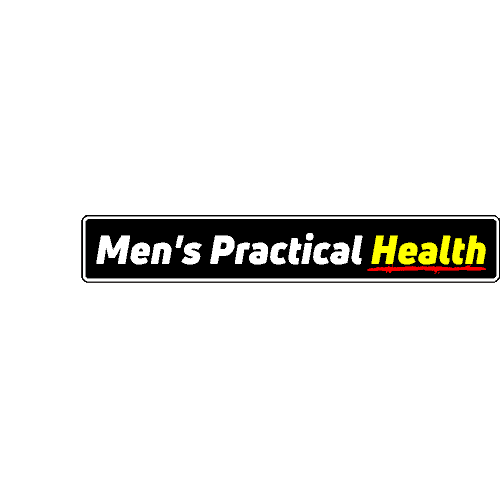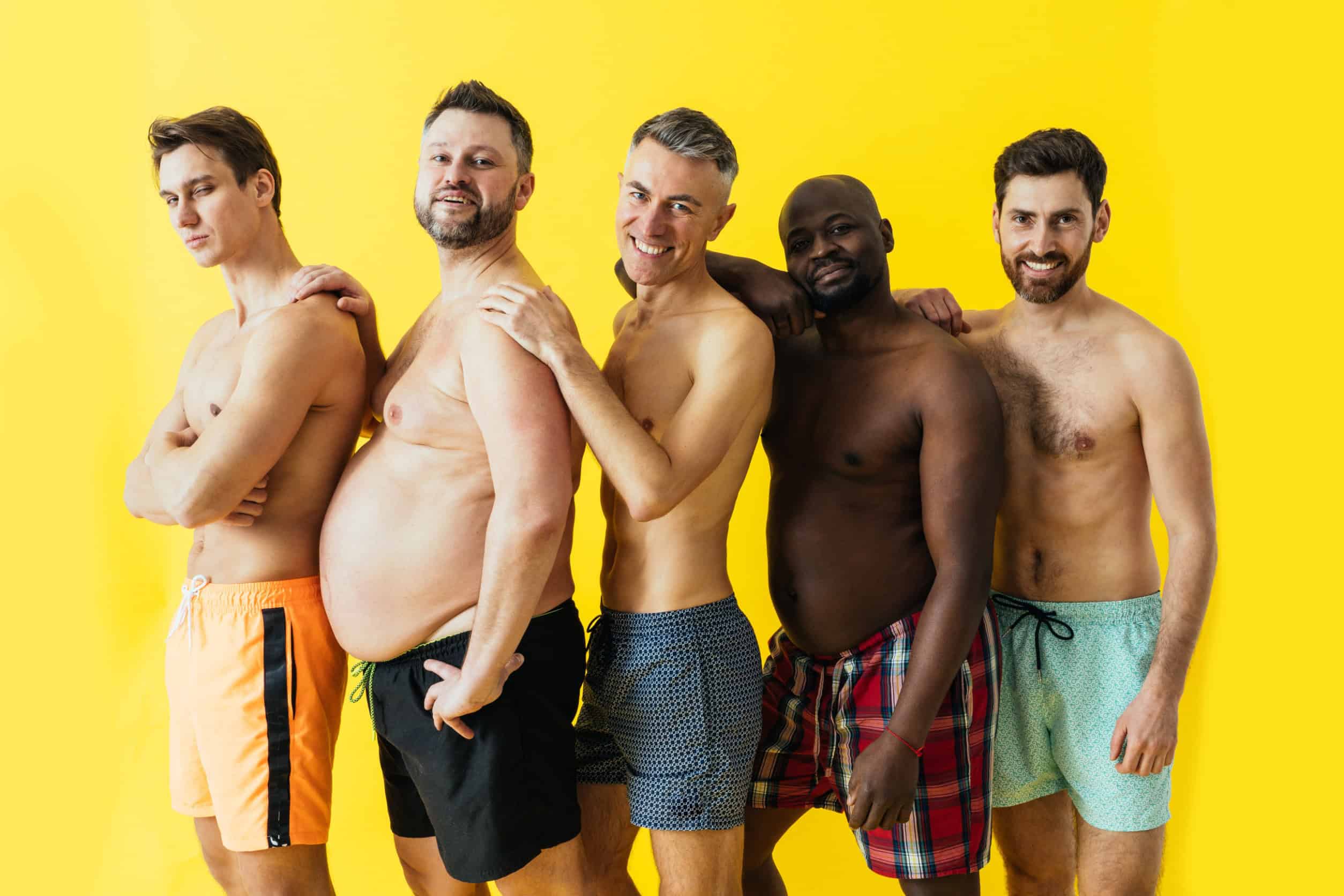I have suffered from my own body image issues, and I managed to overcome them. In fact, the quiet battle with body image dissatisfaction affects everyone, no matter who they are.
It’s time to challenge the stereotype that body image is solely a women’s issue.
So today, we’re breaking the silence and diving deep into the issue of male body image. We will explore the statistics and the steps toward a more positive self-image.
Let’s uncover the absolute truth about men and our body image issues.
What is Male Body Image?
Male body image refers to how men perceive their bodies and how they believe others see them.
The idea of male body image includes many different aspects. It consists of a man’s feelings about:
- Weight
- Musculature
- Height
- Overall physical appearance.
Additionally, it can involve how a man feels about specific body parts, such as his chest, arms, stomach, or legs. Negative body image can lead to body dissatisfaction, eating disorders, and mental health challenges.
Do Men Have Body Image Issues?

When you think about body image issues, you might first picture women under a lot of pressure from society. Yet, men are not immune to these struggles.
Research indicates that men do suffer from body image issues …
And these concerns can have a profound impact on their mental health and well-being.
Body Dysmorphic Disorder (BDD) and Muscle Dysmorphia significantly affect men’s mental health and daily life. Body dysmorphia involves an obsessive focus on perceived flaws in appearance, leading to distress and unhealthy behaviours.
Muscle dysmorphia, a subtype. It is characterised by an obsession with not being muscular enough, resulting in behaviours such as:
- Distress,
- Exercise abuse
- Overeating
- Steroid use
Body image issues in men often manifest in different ways than they do in women. For instance …
While women might worry about being too heavy, men stress over not being muscular enough or not having the “ideal” body type.
This societal expectation has made many men feel inadequate or dissatisfied with their appearance.
Understanding that men also grapple with these issues is the first step in addressing and overcoming them. By acknowledging the problem, we can foster a logical conversation about body image that empowers men to seek help and support when needed.
What are the Statistics on Men’s Body Image?
To understand the prevalence and impact of body image issues among men, let’s take a look at some key statistics.
Studies and surveys reveal the significant impact of body image. Concerns on men’s mental health include:
- Anxiety
- Self-harm
- Suicidal thoughts
According to a study by Bradley University, over 90% of men struggle with dissatisfaction with their body image. This dissatisfaction can lead to significant psychological distress, including depression and anxiety.
Another study reveals that media exposure, peer influence, and personal experiences significantly shape young men’s perceptions of their bodies.
The statistics highlight the urgent need to address male body image issues. We need to provide support for men who may be struggling with self-perception.
What Male Body Type is Most Attractive?

The idea of the “most attractive” male body type is subjective. It can vary depending on cultural, societal, and personal preferences.
However, the leading evolutionary theory of physical attraction states that people find others attractive because they are physically healthy. This attraction helps them find a healthy partner.
In fact, a study found that male attractiveness was in line with optimum healthy appearance and body composition. In other words, lean muscular bodies.
Although media and popular culture often promote a specific ideal emphasising muscularity and leanness to the extreme.
It is this perception that can pressure men to achieve and maintain a particular physique that might lead to body dissatisfaction if they fall short of this ideal.
What Makes a Body Look Masculine?
The concept of masculinity is deeply ingrained in societal norms and cultural expectations. Traditionally, having broad shoulders and a defined chest.
How to Improve Male Body Image
Improving how men see their bodies needs a plan that looks at both personal and social factors. Here are some practical tips for fostering a positive body image:
Seeking professional help for body image struggles is crucial. Qualified mental health professionals, such as therapists or counselors, can provide the necessary support to work towards body peace, regardless of whether the struggles are directly linked to an eating disorder or another mental health condition.
Challenge Unrealistic Standards:
Question and challenge societal norms and media portrayals that promote unrealistic body standards.
You know what I mean …
six-pack abs and 10% body fat.
Now, don’t get me wrong. Those men who achieve this and feel proud of themselves should do. They have worked hard and shown unbelievable discipline to get that look.
However, achieving 10% body fat is not ideal for the majority of men who simply want to live fit and healthy lives.
In fact, for most men, getting those abs to show clearly is not worth it. And remember …
Just because your abs are not visible doesn’t mean that you don’t have strong abs.
Also, recognise that many images from fitness influencers are often digitally altered. Some photos are from certain times of the year and are recycled throughout the year.
For example, the 10% body fat post you saw from your favourite fitness influencer is only maintained for part of the year.
Focus on Health, Not Appearance:

Shift the focus from appearance to overall health and well-being. For your health, you should adopt healthy habits, such as balanced nutrition, regular exercise, and adequate sleep, rather than achieving a particular look.
This shift in mindset, making healthier choices will result in:
- Increased self-esteem
- More productivity
- Increased energy levels
Be Kind to Yourself:
Practice self-compassion and be kind to yourself. Remember that it’s normal to have insecurities …
And that physical appearance does not determine self-worth.
Applying these methods will help you build a happy and healthy relationship with your body.
Do Male Body Image Issues Go Away?
Body image issues do not necessarily “go away” on their own. Yet, they can be managed and improved with the right strategies and support.
Persistent body image issues are often linked with poor mental health, such as:
- Depression
- Anxiety
- Low self-esteem
Recognising body image is essential because many things can affect how you feel about your body.
While some men may experience a decrease in body image concerns as they age and gain more confidence, others may continue to struggle with these issues. Ongoing self-reflection, support, and positive practices can help men maintain a healthier body image.
Ultimately, the goal is not to eliminate body image concerns but to develop resilience and a positive self-perception that allows men to live fulfilling and confident lives.
Summary and Final Thoughts
The silent struggle with body image is a reality for many men. Yet, it often goes unrecognised and unaddressed. By shedding light on this vital issue, we can create a male community where men can discuss their insecurities and seek help.
The prevalence of eating disorders in males includes:
- Anorexia
- Bulimia
- Binge Eating Disorder
- Muscle dysmorphia,
These highlight the importance of seeking professional help for these severe conditions.
Men can develop healthier and more positive relationships with their bodies by:
- Challenging unrealistic standards
- Focusing on overall health
- Being kind to themselves.
If you’re struggling with body image concerns, know that you’re not alone. Resources and support are available to help you on your journey toward a more confident and positive self-image.
For personal advice and support, talk to a mental health professional or join an organised group with others who understand and share what you’re going through.


